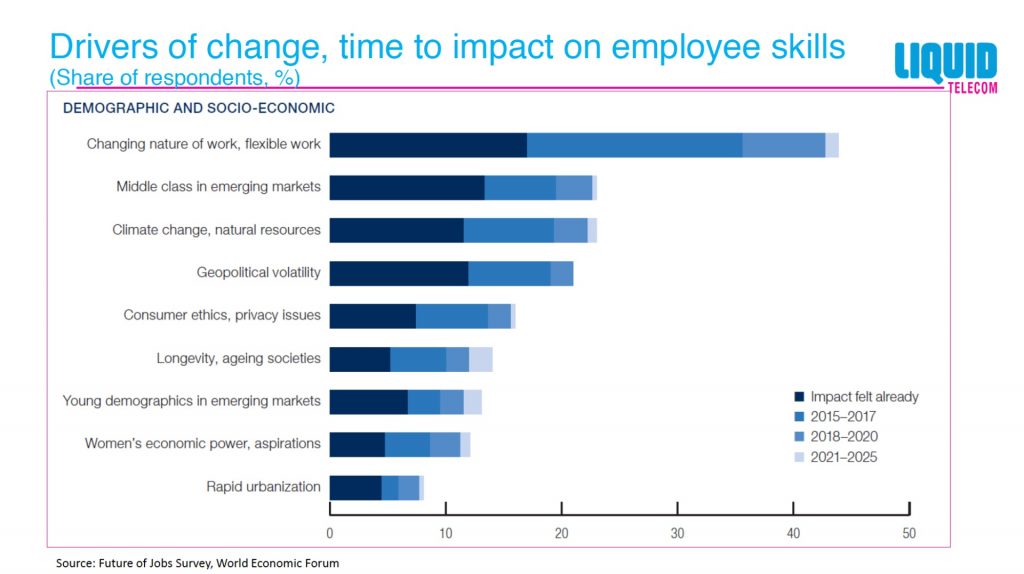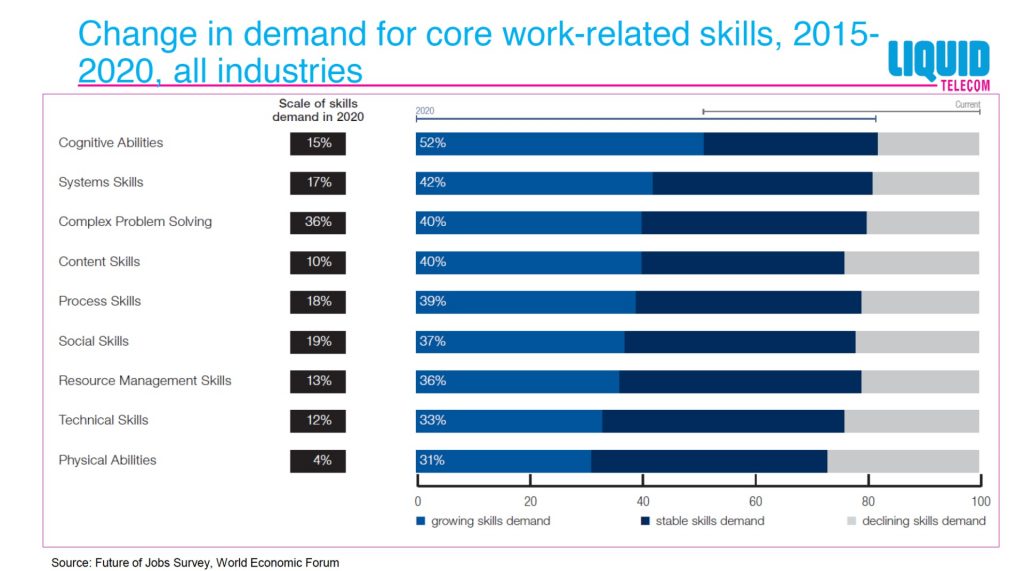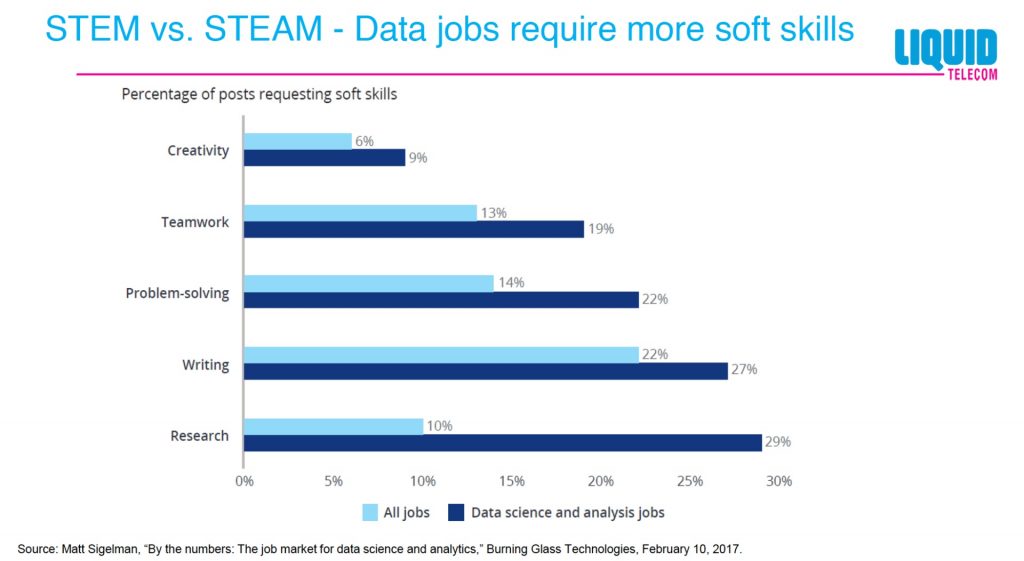Much has been made of the importance of the Fourth Industrial Revolution (4IR) of late, with the South African Presidency highlighting its importance should the country wish to be lead the digital transformation debate on the continent.
Add to that the next wave of yet-to-be discovered jobs that 4IR will bring to the fore, which too is prompting government and tertiary institutions alike to begin prepping the next generation of workers with the necessary skills that will be required.
To that end we’ve much made of the significance of nurturing talent with an understanding of artificial intelligence, machine learning and data science. While important, that’s only one aspect of the 4IR preparation, explains Liquid Telecom chief HR officer, Rebecca Mosehle.
The executive noted as much during an unpacking of the Liquid Telecom African Digital Skills report for local media last week, pointing to the development of soft skills to complement the digital ones as being of particular importance.
Much of this need for soft skills is driven by the requirement to collaborate in a 4IR environment.

A key driver of this will be the nature of work, according to Mosehle, with employees requiring greater flexibility in both the location and degree of flexibility that a job offers. Linked to this will be an increasing need for cross-functional skills, where coordination, negotiation and emotional intelligence will play a bigger role in the workplace.
Looking at 2020 and beyond then, Mosehle points to a recent World Economic Forum Future of Jobs Survey, where it was found that cognitive abilities, systems knowledge and complex problem solving ranked highest respectively in terms skills demands moving forward.

If that survey is anything to go by, and Mosehle believes it is, soft skills will prove as vital and in-demand as data science and AI training will be.
As such, Mosehle leans towards the thinking the big push towards STEM-related (science, technology, engineering and mathematics) skills, should also incorporate arts, and become STEAM.
This especially so as she lists how the number of data-related jobs requiring soft skills are on the rise, with creativity, problem-solving, writing and teamwork proving crucial too.
When asked about whether a greater focus on soft skills will begin to permeate into the education field, and tertiary institutions in particular, Mosehle is confident that universities will eventually embrace soft skills subjects as part of their curriculums.

In particular she thinks that elective subjects will begin to focus more on softer skills, such as cognitive thinking and writing, with something like philosophy potentially filling that gap. She does, however, acknowledge that it will take time, especially for government to implement such changes.
To that end Mosehle concludes by noting that while Liquid Telecom has been in conversation about collaborations with tertiary institutions like the University of Johannesburg, they have less insight into governmental plans.
The next step in her view is to wait and see what some of the recently formed government and provincial committees on 4IR outline as objectives, with Liquid Telecom stating that it’s ready to assist and do its part for the growth of digital and soft skills on the continent.
[Image – Photo by Ryoji Iwata on Unsplash]

